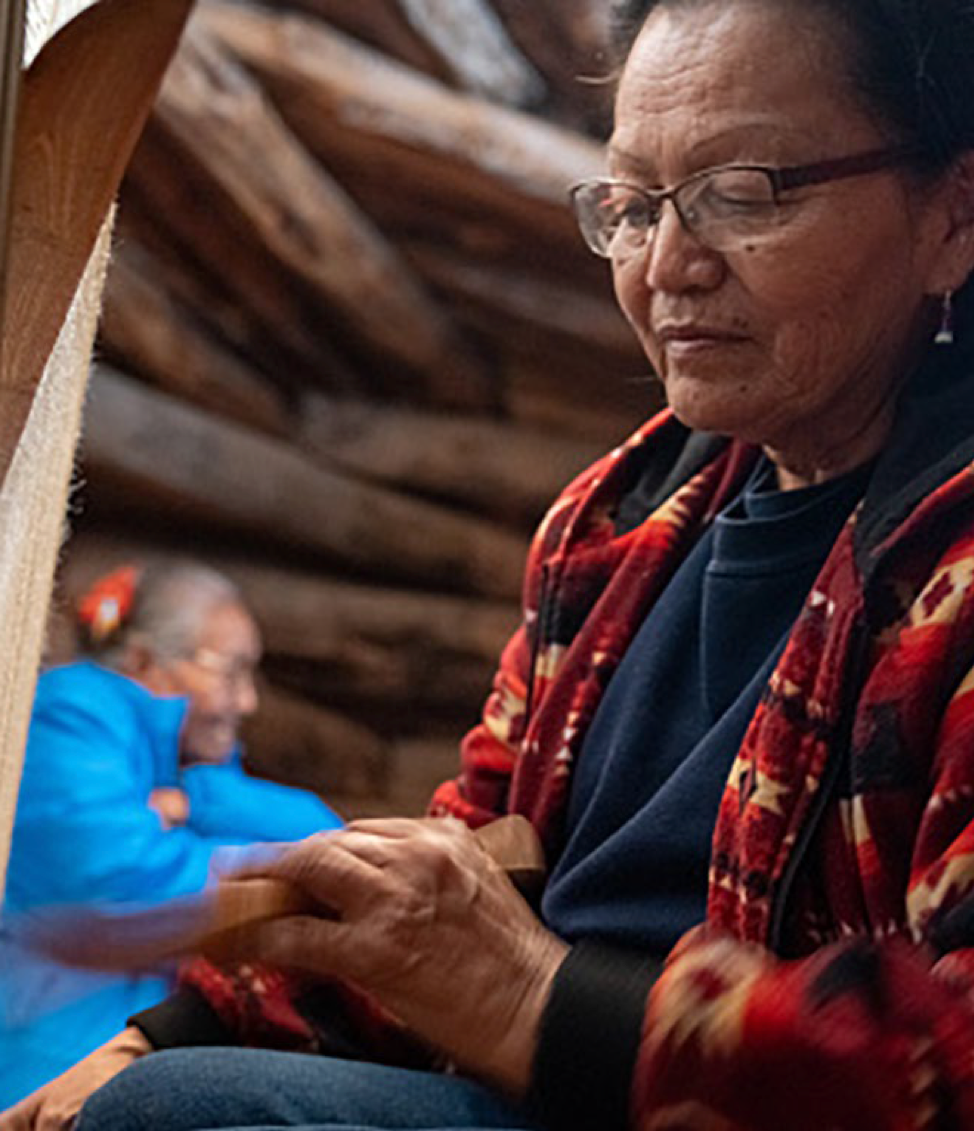In recognition of Native American Heritage Month and National Family Caregivers Month
Native American Heritage Month is a time to honor the languages, stories, and traditions that Indigenous communities have carried forward for generations. This year’s theme, “Weaving together our past, present and future,” reminds us that for American Indian and Alaska Native (AI/AN) peoples, history is not just something to look back on—it’s something that lives in our bodies, families, and communities today. At the same time, November is also National Family Caregivers Month, a moment to recognize the millions of people who provide care to loved ones, often in silence and with little support. For AI/AN communities, these two commemorations are deeply intertwined: older adults and caregivers are the keepers of culture, resilience, and survival.
Past: Policies That Disrupted Native Families and Care
The federal government’s history with AI/AN communities is marked by policies that intentionally fractured families and disrupted caregiving traditions. From forced removals and broken treaties to the Federal Indian Boarding School era, Native children were separated from their families, languages, and cultures. Those policies did not just target individuals—they targeted kinship systems, caregiving roles, and the networks that sustained community life.
Many of today’s AI/AN older adults lived through or are closely connected to those eras. The trauma of being taken from home, punished for speaking one’s language, or seeing parents struggle under discriminatory policies did not disappear with time. It shows up today in health disparities, in mistrust of systems that continue to fall short, and in the heavy emotional load carried by AI/AN family caregivers who are supporting elders with histories of profound loss and resilience.
Present: AI/AN Elders and Caregivers in an Unequal System
Today, AI/AN elders face some of the starkest inequities in the United States. They experience higher rates of chronic conditions such as diabetes, heart disease, and dementia, and are more likely to live in poverty or in rural and remote communities with limited access to services. At the same time, caregiving in AI/AN communities is often understood as a shared responsibility rooted in kinship, culture, and respect for elders—not just an individual “role” or job.
Many AI/AN caregivers are:
- Supporting multiple generations at once—children, parents, and grandparents.
- Navigating fragmented systems across Indian Health Service, tribal programs, state Medicaid agencies, and local providers.
- Stretching limited resources when programs like Medicaid, SNAP, and long-term services and supports are threatened or underfunded.
Recent federal policy actions—including the budget reconciliation bill that makes deep cuts to Medicaid and SNAP—place AI/AN caregivers and older adults in even greater danger. When Medicaid funding is reduced and states cut so-called “optional” benefits like home- and community-based services, tribal and rural communities are often hit first and hardest. When SNAP benefits shrink and work requirements are expanded into older ages, it intensifies food insecurity for older adults who already face barriers to safe, healthy food.
Within the Diverse Elders Coalition (DEC), our member organization the National Indian Council on Aging (NICOA) has long called attention to these realities. NICOA’s advocacy, research, and community engagement help policymakers understand that AI/AN older adults are not an afterthought—they are central to the health and future of Native nations. Through our shared work on diverse family caregiving, DEC and NICOA are lifting up stories of AI/AN caregivers, highlighting gaps in services, and pushing for policies that respect culture and sovereignty while meeting urgent day-to-day needs.
Future: Weaving Health Equity and Care Justice Together
Even in the face of ongoing policy threats, AI/AN communities continue to model what true health equity can look like. Many tribal programs are building culturally grounded caregiver supports, integrating traditional healing practices with clinical care, and designing services that honor language, ceremony, and community connection. Older adults are teaching children their history, passing on songs and stories, and reminding us that survival has always depended on collective care.
For DEC, “weaving together our past, present and future” means:
- Past: Naming and confronting the policies that created today’s inequities, including those that targeted Native families and caregiving structures.
- Present: Documenting the realities of AI/AN caregivers and older adults through our 2025 literature review and training curriculum and using that evidence to challenge harmful cuts to Medicaid, SNAP, and long-term care.
- Future: Working with NICOA and our partners to translate research into concrete advocacy—one-pagers, factsheets, trainings, and Hill education—that centers AI/AN voices in the fights over health, aging, and caregiving policy.
A future rooted in health equity means ensuring that AI/AN older adults can age in their communities with dignity, that family caregivers are supported rather than exhausted, and that federal and state policies finally align with the sovereignty and self-determination of Native nations. It also means recognizing that caregiving is not “extra”—it is infrastructure, as essential as roads and hospitals, especially in Indian Country.
Our past, present, and future are indeed woven together. To honor AI/AN elders and caregivers is to commit to policies that allow them not only to survive, but to thrive—rooted in culture, supported by community, and protected by systems that finally live up to their promises.

